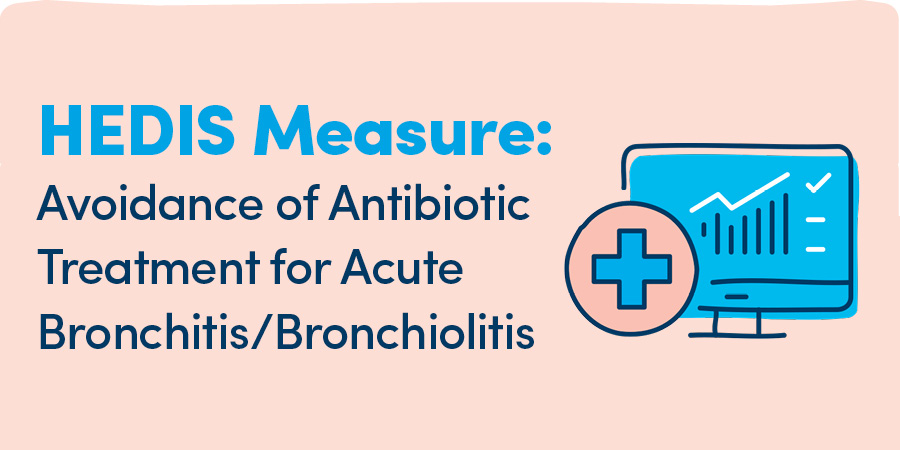

Complying with the HEDIS quality measure Avoidance of Antibiotic Treatment for Acute Bronchitis/Bronchiolitis (AAB) occurs when patients three months and older — with a diagnosis of acute bronchitis (J20X) or bronchiolitis (J21X) — are not dispensed an antibiotic on the day of their visit or within three days after.
There are some competing and co-morbid diagnoses that will exclude/remove the member from the AAB measure such as: acute pharyngitis, tonsillitis, suppurative otitis media, sinusitis, pneumonia, disease upper respiratory tract, acute lymphangitis, urinary tract infection (UTI), cancer, chronic obstructive pulmonary disease (COPD), HIV, respiratory failure, tuberculosis (TB), among others.
After examination, if a patient medically requires an antibiotic prescription due to one of the above competing diagnoses, please submit the additional ICD-10 code on the claim.Antibiotic prescribing is a complex issue, but simple changes can potentially create a significant impact. For additional education on antibiotic stewardship, click here for free courses and webinars from the Centers for Disease Control and Prevention (CDC).
for free courses and webinars from the Centers for Disease Control and Prevention (CDC).
References
1 Antibiotic Use and Antimicrobial Resistance Facts | Antibiotic Prescribing and Use | CDC
Highmark does not recommend particular treatments or health care services. This information is not intended to be a substitute for professional medical advice, diagnosis, or treatment. You should determine the appropriate treatment and follow-up with your patient. Coverage of services is subject to the terms of each member’s benefit plan. Additionally, state laws and regulations governing health insurance, health plans and coverage may apply and will vary from state to state.
The Healthcare Effectiveness Data and Information Set (HEDIS®) is a registered trademark of NCQA.